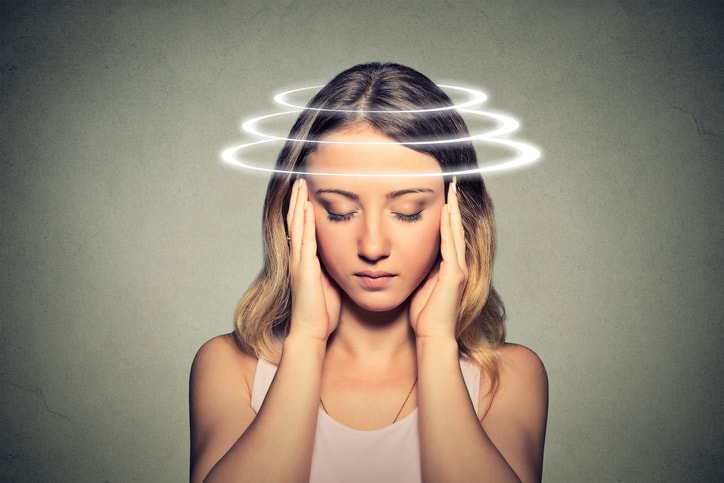
Dizziness is one of the most common complaints that bring people to Emergency Departments. Actually, dizziness covers a large range of symptoms, including vertigo, lightheadedness, loss of balance and unsteadiness. If you have ever experienced true vertigo, you’ll never mistake it for being unsteady. The world appears to spin around you. often bringing on bouts of severe nausea and vomiting.
Vertigo is usually caused by problems in the inner ear. The outer ear consists of the ear canal and the outer surface of the eardrum. The middle ear contains the three tiny bones that conduct sound from the eardrum to the oval window. The oval window is covered by a membrane, separating the middle and inner ears and conducting sound waves into the vestibule of the inner ear. Also part of the vestibule is a tiny organ called the semicircular canals.
The canals are minute tubes shaped something like a three-dimensional pretzel. They contain fluid and a membrane with protrusions called cupolae. When the head moves, the cupolae are pushed by the movement of the fluid. Since the three canals are each in a different plane, the sensory input from the canals tells you where your head is in relation to the earth – horizontal (on a pillow), upright, upside down, etc.
What causes vertigo?
- Vestibular neuritis – the commonest cause of vertigo. It is usually an inflammatory condition of the semicircular canals following a viral upper respiratory infection. It lasts for several days and the patients are generally quite sick with nausea.
- BPPV – Benign Paroxysmal Positional Vertigo – the second most common cause. Vertigo appears suddenly, lasts only a short time and is associated with movement of the head. It is more common in older people and is caused by the movement of crystals within the fluid in the canals.
- A Vestibular migraine – a variety of a migraine headache that presents with vertigo as opposed to a headache.
- Ménière disease – a condition that is not well understood, but has been associated with an excess of fluid in the semicircular canals. It is associated with hearing loss and ringing in the ears.
What are the symptoms of vertigo?
- You see the world spinning around you.
- Nausea and vomiting.
- Breaking out in a cold sweat.
- Falling – there is a significant danger of loss of balance and falls.
- Hearing loss
- Tinnitus – ringing in the ears.
- Abnormal eye movements.
Treatment of vertigo varies with the cause.
- Vestibular neuritis is treated with rest, medications for nausea and motion sickness and fluids. In more severe cases corticosteroids are used to prevent the development of a chronic condition.
- BPPV is generally treated with watchful waiting since it is a benign condition. If it persists, certain movements of the head can reposition the crystals in the canal fluid to relieve the problem.
- A Vestibular migraine is treated basically the same way that any a migraine headache is treated, with medications to stop the acute episode and others to prevent recurrence.
- Ménière disease is difficult to treat and the disease can be disabling.
Can vertigo recur? Certainly. Although vestibular neuritis is unlikely to happen again, it can. All of the other causes have repeat episodes.
If you’re having episodes of dizziness that you think might be vertigo, you need to see a doctor. The condition can be serious and needs to be differentiated from common causes, which usually requires an expert. New York ENT, Advanced Center for Specialty Care, has the experts you need. Call them today for an appointment.



